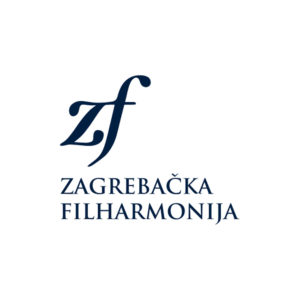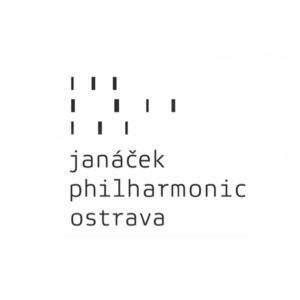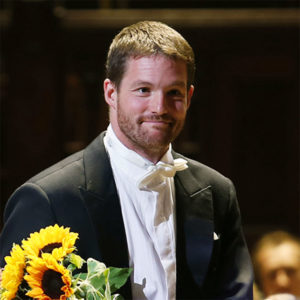Baltic Sketches
Scott Brickman composer
BALTIC SKETCHES by composer Scott Brickman is a collection of symphonic works inspired by Brickman’s Baltic and Slavic ancestry. The album features his Symphony No. 5, which draws on Latvian folk traditions, including folk dances, songs, and Lutheran liturgical music. It also includes Symphony No. 1, an exploration of neoclassical form influenced by contemporary socio-political events, including military conflict in the Middle East and the climate crisis. Symphony No. 6 for wind ensemble explores textural and timbral color and nods to the Lutheran chorale, In Dulci Jubilo. Blending classical forms with asymmetrical dance meters and folk melodies, Brickman’s BALTIC SKETCHES finds unexpected connections between time-honored traditions.
Listen
Stream/Buy
Choose your platform
Performance Video
Scott Brickman and Symphony #6, Sinfonia for Wind Ensemble
Track Listing & Credits
| # | Title | Composer | Performer | |
|---|---|---|---|---|
| 01 | Symphony #5: I. Allegro con Spirito | Scott Brickman | Zagreb Philharmonic Orchestra | Ivan Josip Skender, conductor | 8:44 |
| 02 | Symphony #5: II. Cantabile (Valse Melancholique) | Scott Brickman | Zagreb Philharmonic Orchestra | Ivan Josip Skender, conductor | 4:25 |
| 03 | Symphony #5: III. Energico | Scott Brickman | Zagreb Philharmonic Orchestra | Ivan Josip Skender, conductor | 4:38 |
| 04 | Symphony #1: I | Scott Brickman | Kiev Philharmonic | Robert Ian Winstin, conductor | 3:19 |
| 05 | Symphony #1: II | Scott Brickman | Kiev Philharmonic | Robert Ian Winstin, conductor | 3:24 |
| 06 | Symphony #1: III & IV | Scott Brickman | Kiev Philharmonic | Robert Ian Winstin, conductor | 5:03 |
| 07 | Symphony #4 “Restoration” | Scott Brickman | Janáček Philharmonic Ostrava | Jiří Petrdlík, conductor | 10:57 |
| 08 | Symphony #6 (Sinfonia for Wind Ensemble): I. Maestoso | Scott Brickman | Filharmonie Brno | Jiří Petrdlík, conductor | 4:07 |
| 09 | Symphony #6 (Sinfonia for Wind Ensemble): II. Cantabile: Risoluto | Scott Brickman | Filharmonie Brno | Jiří Petrdlík, conductor | 3:42 |
| 10 | Symphony #6 (Sinfonia for Wind Ensemble): III. Grandioso | Scott Brickman | Filharmonie Brno | Jiří Petrdlík, conductor | 3:32 |
Symphony #5
Recorded March 3-4, 2021 at Vatroslav Lisinski Concert Hall Theatre in Zagreb, Croatia
Session Producer Krešimir Seletković
Session Engineer Filip Vidovic
Recording Session Director Levi Brown
Editing & Mixing Lucas Paquette
Symphony #1
Recorded at the National Radio Studio of Ukraine in Kyiv, Ukraine
Session Producer Alexander Hornostai
Session Engineer Andrij Mokrytsky
Symphony #4 “Restoration”
Recorded February 28, 2019 at Dům Kultury města Ostravy in Ostrava, Czech Republic
Session Producer Jan Košulič
Co-producer Bob Lord
Session Engineer Aleš Dvořák
Assistant Engineer Maroš Hlatký
Recording Sessions Manager Levi Brown
Recording Sessions Assistant Emma Terrell
Editing & Mixing Shaun Michaud
Symphony #6
Recorded November 18, 2022 at Besední dům in Brno, Czech Republic
Session Producer Jan Košulič
Session Engineer Jaroslav Zouhar
Editing Jan Košulič
Additional Editing & Mixing Melanie Montgomery
Mastering Melanie Montgomery
Executive Producer Bob Lord
VP of A&R Brandon MacNeil
VP of Production Jan Košulič
Audio Director Lucas Paquette
Production Manager Martina Watzková
VP, Design & Marketing Brett Picknell
Art Director Ryan Harrison
Design Edward A. Fleming, Morgan Hauber
Publicity Chelsea Olaniran
Digital Marketing Manager Brett Iannucci
Artist Information

Scott Brickman
Scott Brickman (b. 1963, Oak Park IL) is passionate about sports, his Baltic and Slavic ancestry, and culture. He loves traveling through Central, Eastern, Northern Europe, and Canada, which is a mere kilometer from where he currently lives. Currently he is Professor of Music and Education at the University of Maine at Fort Kent where he has taught since 1997. Though scholarship has not been the focus of his activities, he recently presented papers on set theory, jazz history, and music education in Strasbourg, France, Lviv, Ukraine, and Liepaja, Latvia respectively. His orchestral music has been performed and recorded by ensembles in Croatia, Czechia, Moldova, Poland, and Ukraine.

Zagreb Philharmonic Orchestra
The Zagreb Philharmonic Orchestra boasts 150 years of tradition of first-class musicianship in Zagreb and across Croatia. It acts as a promoter of the art of music in Croatia and a cultural ambassador of Croatia in the world. It is a symbol of the city in which it operates and a musical institution that captures the urban image of Zagreb as a central European musical, art and cultural centre.

Janáček Philharmonic Ostrava
The Janáček Philharmonic is a world-class symphony orchestra based in Ostrava, Czech Republic and an emerging figure on the international performance scene. With over 100 top-level musicians, the orchestra aims to introduce unique, quality repertoire while showcasing their own recognizable sound.

Jiří Petrdlík
Jiří Petrdlík (b. 1977) is appreciated as one of the most respectable conductors of his generation. He studied piano, trombone, and conducting — 1995–2000 at Prague Conservatory, and 2000–2005 at Academy of Performing Arts Prague — with Hynek Farkač, Miroslav Košler, Miriam Němcová, Radomil Eliška, and Tomáš Koutník, and took part in the masterclasses of the New York Philharmonic Principal Conductor Kurt Masur and the BBC Philharmonic Principal Conductor Jiří Bělohlávek. Petrdlík also successfully took part in several competitions, including the Donatella Flick Conductor Competition in London.

Filharmonie Brno
Since its earliest days, Filharmonie Brno has established a profile as a Janáčkian orchestra, thus making a substantial contribution to the cultural life of Brno — where Leoš Janáček composed nearly his entire oeuvre — and becoming an enthusiastic champion of his music. Since its foundation in 1956, the orchestra has regularly performed Janáček’s works in concerts at home and abroad; it has also recorded, multiple times, his complete symphonic works and cantatas.

